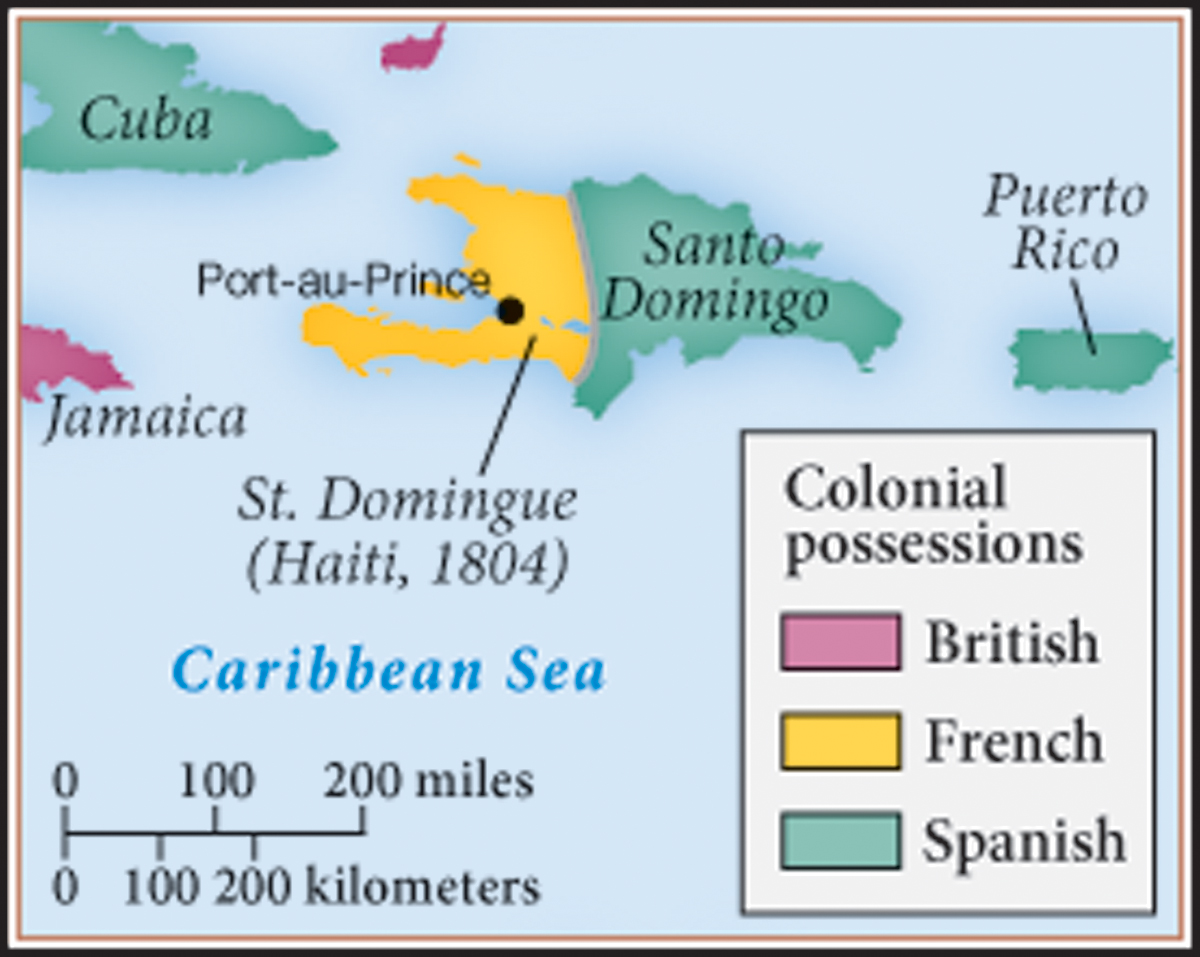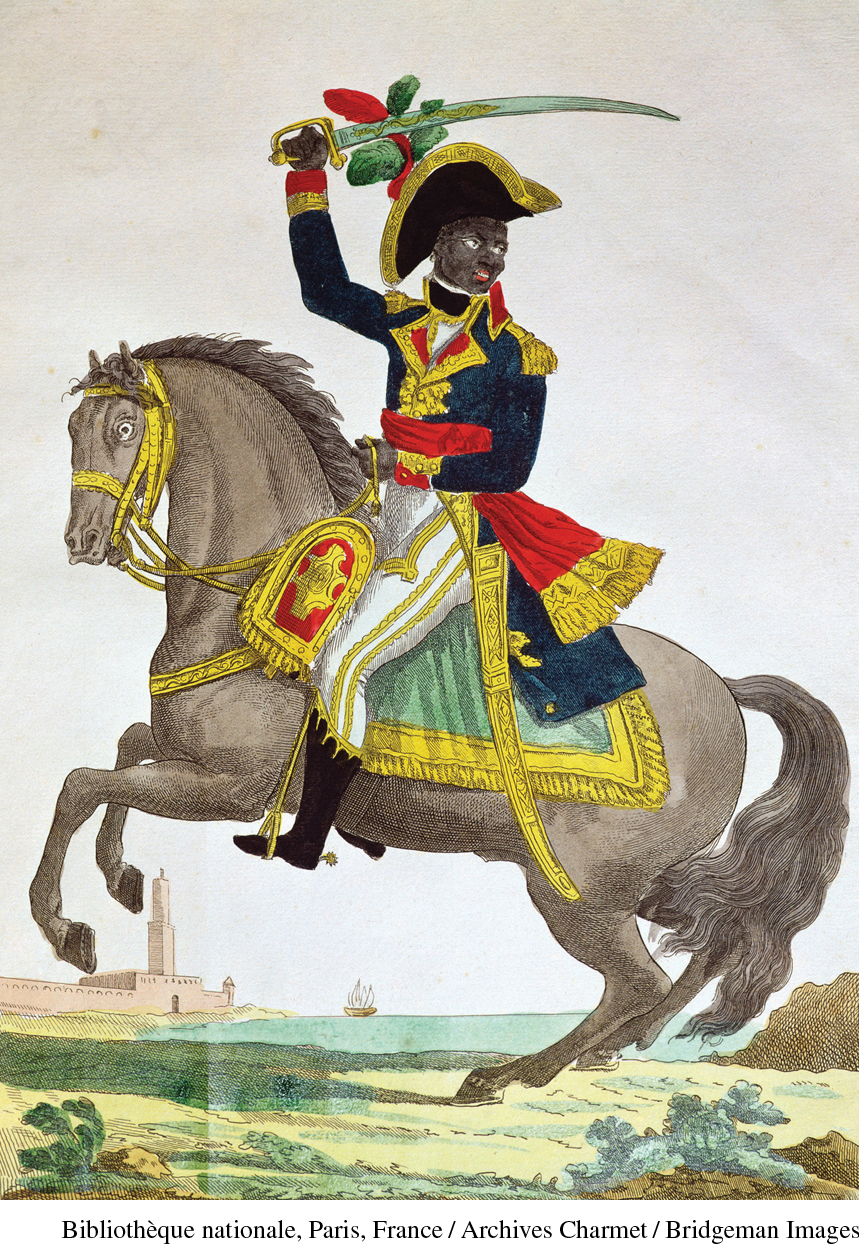Revolution in the Colonies
Revolution in the Colonies

The revolution that produced so much upheaval in continental Europe transformed life in France’s Caribbean colonies, too. These colonies were crucial to the French economy. Twice the size in land area of the neighboring British colonies, they also produced nearly twice as much revenue in exports. The slave population had doubled in the French colonies in the twenty years before 1789. St. Domingue (present-day Haiti) was the most important French colony. Occupying the western half of the island of Hispaniola, it was inhabited not only by 465,000 slaves and 30,000 whites but also by 28,000 free people of color, whose primary job was to apprehend runaway slaves and ensure plantation security.
Despite the efforts of a Paris club called the Friends of Blacks, most French revolutionaries did not consider slavery a pressing problem. In August 1791, however, the slaves in northern St. Domingue organized a large-scale revolt. To restore authority over the slaves, the deputies in Paris granted civil and political rights to the free blacks. This action infuriated white planters and merchants, who in 1793 signed an agreement with Great Britain, now France’s enemy in war, declaring British sovereignty over St. Domingue. To complicate matters further, Spain, which controlled the rest of the island and had entered on Great Britain’s side in the war with France, offered freedom to individual slave rebels who joined the Spanish armies as long as they agreed to maintain the slave regime for the other blacks. (See “Document 19.2: Address on Abolishing the Slave Trade.”)

The few thousand French republican troops on St. Domingue were outnumbered, and to prevent complete military disaster, the French commissioner freed all the slaves in his jurisdiction in August 1793 without permission from the government in Paris. In February 1794, the National Convention formally abolished slavery and granted full rights to all black men in the colonies. These actions had the desired effect. One of the ablest black generals allied with the Spanish, the ex-slave François Dominique Toussaint L’Ouverture (1743–1803), changed sides and committed his troops to the French. Toussaint remained in charge until 1802, when Napoleon sent French armies to regain control of the island. They arrested Toussaint and transported him to France, where he died in prison. Toussaint became a hero to abolitionists everywhere, a potent symbol of black struggles to win freedom. Napoleon attempted to restore slavery, as he had in the other French Caribbean colonies of Guadeloupe and Martinique, but the remaining black generals defeated his armies and in 1804 proclaimed the Republic of Haiti.